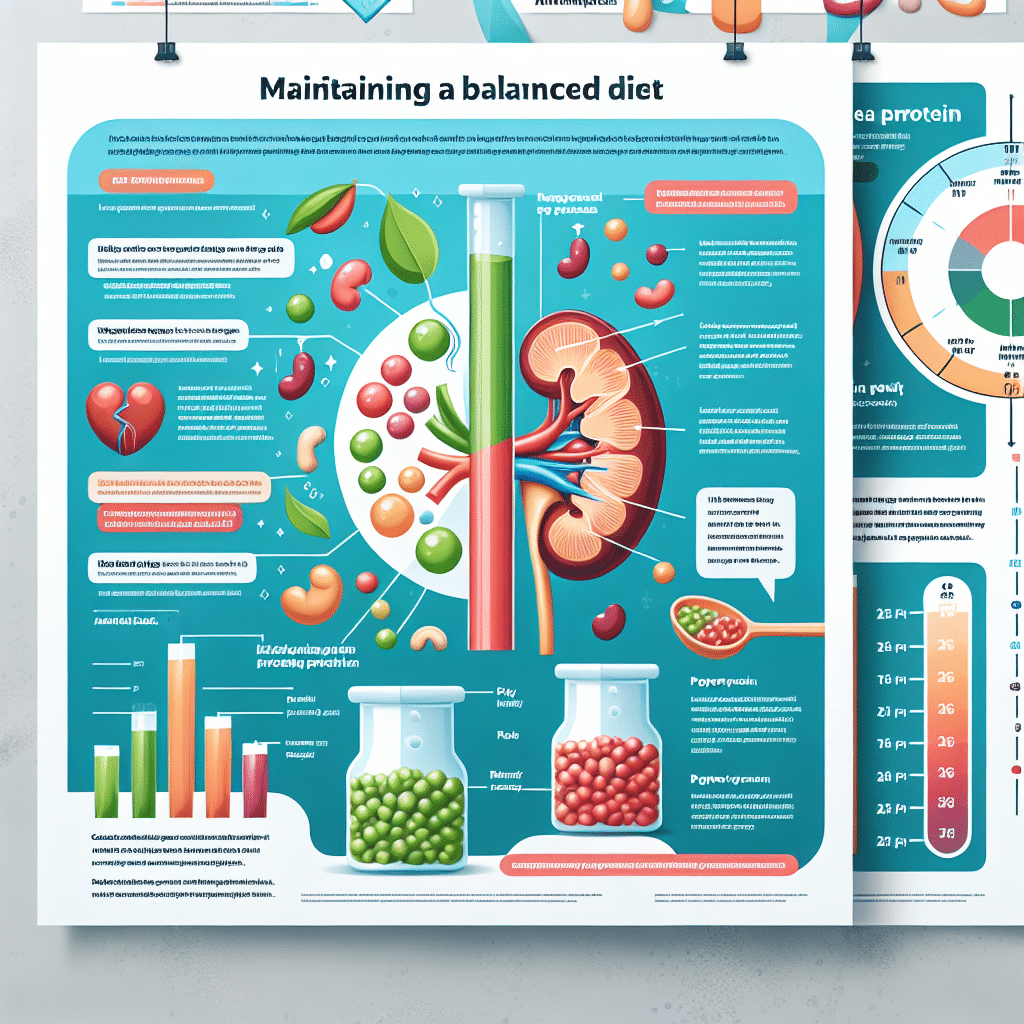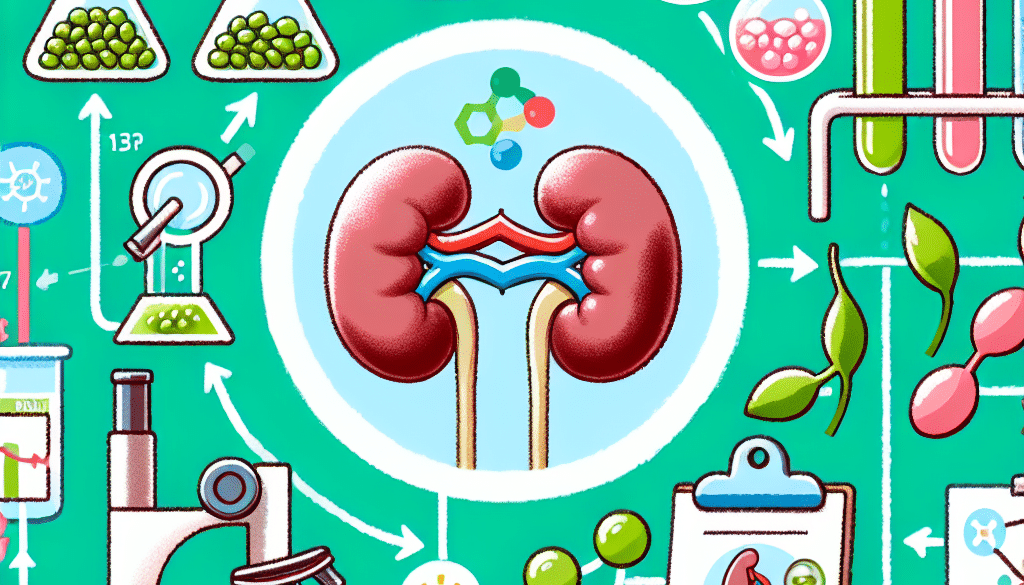Is Pea Protein Safe For Kidneys?
-
Table of Contents
- Pea Protein and Kidney Health: A Comprehensive Analysis
- Understanding Pea Protein
- The Kidneys: A Vital Organ
- Protein Intake and Kidney Function
- Is Pea Protein Safe for Kidneys?
- Case Studies and Research
- Recommended Daily Intake
- Conclusion: Balancing Protein and Kidney Health
- Discover ETprotein’s High-Quality Pea Protein Products
Pea Protein and Kidney Health: A Comprehensive Analysis

As the popularity of plant-based diets continues to rise, pea protein has emerged as a favored alternative to animal-based proteins. Its high protein content, hypoallergenic nature, and sustainability make it an attractive option for many. However, with the increasing consumption of plant-based proteins, concerns about their impact on kidney health have surfaced. This article delves into the safety of pea protein for the kidneys, examining scientific evidence and expert opinions to provide a well-rounded perspective.
Understanding Pea Protein
Pea protein is derived from yellow split peas and is a high-quality source of protein that contains all nine essential amino acids. It is commonly used in protein powders, meat substitutes, and a variety of other health food products. Its rise in popularity can be attributed to its plant-based origin, making it suitable for vegans, vegetarians, and those with dietary restrictions such as lactose intolerance.
The Kidneys: A Vital Organ
The kidneys are crucial for maintaining overall health. They filter waste products, excess water, and other impurities from the blood. These waste products are then excreted from the body through urine. The kidneys also regulate pH, salt, and potassium levels in the body and produce hormones that control blood pressure and stimulate red blood cell production.
Protein Intake and Kidney Function
Protein is essential for the growth, repair, and function of all body cells, including those in the kidneys. However, excessive protein intake can put a strain on the kidneys, especially in individuals with pre-existing kidney conditions. The concern is that a high-protein diet may increase the kidneys’ workload due to the need to filter and eliminate the byproducts of protein metabolism.
Is Pea Protein Safe for Kidneys?
When it comes to pea protein and kidney health, the current body of research suggests that for most individuals with healthy kidneys, pea protein is safe and does not pose a risk to kidney function. Here are some key points to consider:
- Plant-Based Proteins and Kidney Health: Studies have indicated that plant-based proteins like pea protein may be less taxing on the kidneys compared to animal-based proteins. This is partly because plant proteins have a lower content of certain amino acids that are metabolized into potentially harmful substances.
- Protein Quality: Pea protein is a high-quality protein that is rich in branched-chain amino acids (BCAAs), which are beneficial for muscle growth and repair. The high-quality nature of pea protein means that it can be effectively utilized by the body, potentially reducing waste products.
- Digestibility: Pea protein is highly digestible, which means that it is efficiently absorbed and used by the body, minimizing the residue that needs to be filtered by the kidneys.
However, it is important to note that individuals with chronic kidney disease (CKD) or other kidney-related issues should consult with a healthcare provider before making significant changes to their protein intake, including the introduction of pea protein supplements.
Case Studies and Research
Several studies have explored the impact of protein source on kidney health. For instance, a study published in the American Journal of Kidney Diseases found that plant-based diets, which typically include proteins like pea protein, were associated with a lower risk of CKD progression. Another study in the Journal of Renal Nutrition highlighted that plant-based diets could help improve phosphorus and acid-base balance in CKD patients.
Recommended Daily Intake
For the general population, the recommended dietary allowance (RDA) for protein is 0.8 grams per kilogram of body weight per day. Athletes and those engaging in regular intense physical activity may require more protein to support muscle repair and growth. It is essential to balance protein intake with other nutrients and to consume a variety of protein sources for optimal health.
Conclusion: Balancing Protein and Kidney Health
In conclusion, pea protein is generally considered safe for individuals with healthy kidneys. Its plant-based nature and high digestibility make it a kidney-friendly option. However, those with kidney impairments should approach pea protein with caution and seek medical advice. As with any dietary change, moderation and variety are key. Incorporating pea protein as part of a balanced diet can contribute to overall health and well-being without overburdening the kidneys.
Discover ETprotein’s High-Quality Pea Protein Products
If you’re looking to incorporate pea protein into your diet, ETprotein offers a range of high-quality protein products that are perfect for various dietary needs. Their pea protein is characterized by a neutral taste, non-GMO, and allergen-free attributes, ensuring that you can enjoy the benefits of this plant-based protein without compromising on taste or quality.
ETprotein’s commitment to excellence is evident in their extensive product range, which caters to industries such as nutraceuticals, pharmaceuticals, cosmeceuticals, and food and beverage. Whether you’re a distributor, trader, or manufacturer, ETprotein can meet your protein needs with their organic bulk vegan proteins and L-(+)-Ergothioneine.
Choose ETprotein for a trusted source of pea protein that supports your health and dietary goals. Contact them at sales(at)ETprotein.com to learn more about their products and how they can benefit you.
About ETprotein:
ETprotein, a reputable protein and L-(+)-Ergothioneine (EGT) Chinese factory manufacturer and supplier, is renowned for producing, stocking, exporting, and delivering the highest quality organic bulk vegan proteins and L-(+)-Ergothioneine. They include Organic rice protein, clear rice protein, pea protein, clear pea protein, watermelon seed protein, pumpkin seed protein, sunflower seed protein, mung bean protein, peanut protein, and L-(+)-Ergothioneine EGT Pharmaceutical grade, L-(+)-Ergothioneine EGT food grade, L-(+)-Ergothioneine EGT cosmetic grade, L-(+)-Ergothioneine EGT reference grade and L-(+)-Ergothioneine EGT standard. Their offerings, characterized by a neutral taste, non-GMO, allergen-free attributes, with L-(+)-Ergothioneine purity over 98%, 99%, cater to a diverse range of industries. They serve nutraceutical, pharmaceutical, cosmeceutical, veterinary, as well as food and beverage finished product distributors, traders, and manufacturers across Europe, USA, Canada, Australia, Thailand, Japan, Korea, Brazil, and Chile, among others.
ETprotein specialization includes exporting and delivering tailor-made protein powder and finished nutritional supplements. Their extensive product range covers sectors like Food and Beverage, Sports Nutrition, Weight Management, Dietary Supplements, Health and Wellness Products, and Infant Formula, ensuring comprehensive solutions to meet all your protein needs.
As a trusted company by leading global food and beverage brands and Fortune 500 companies, ETprotein reinforces China’s reputation in the global arena. For more information or to sample their products, please contact them and email sales(at)ETprotein.com today.












